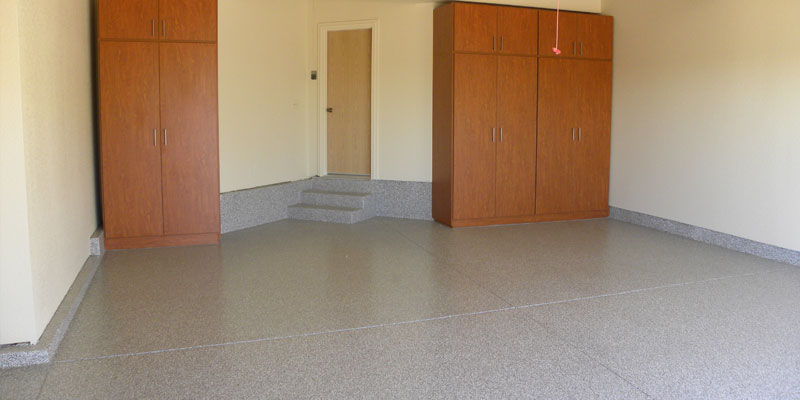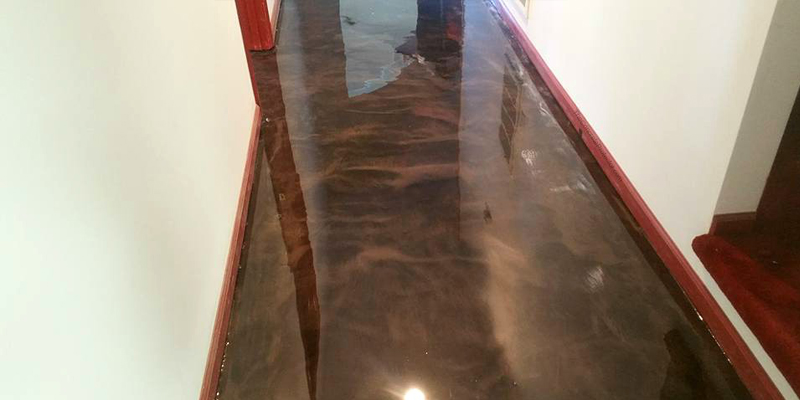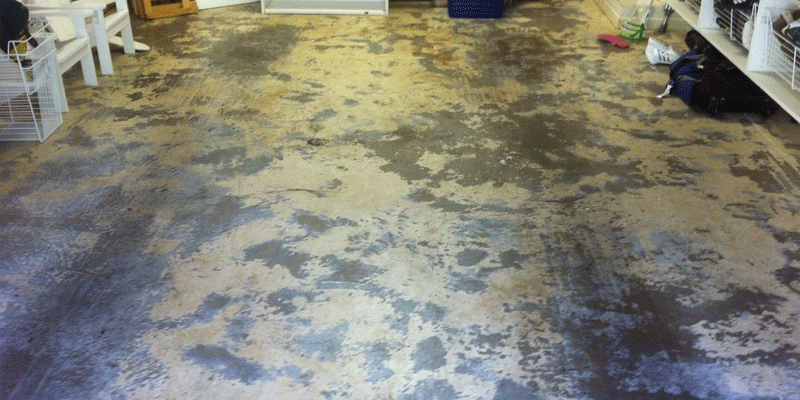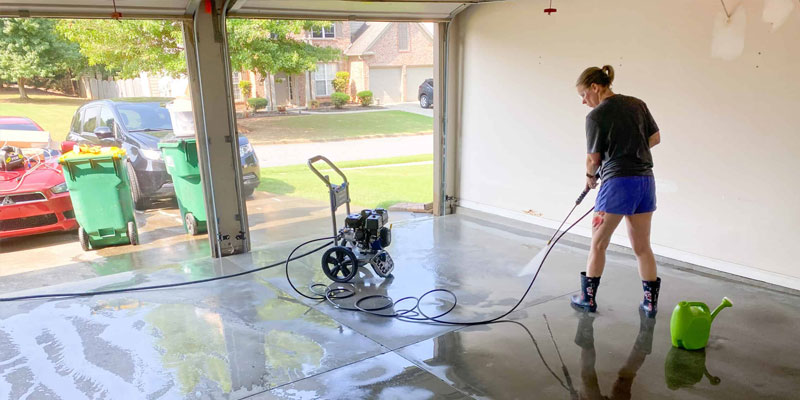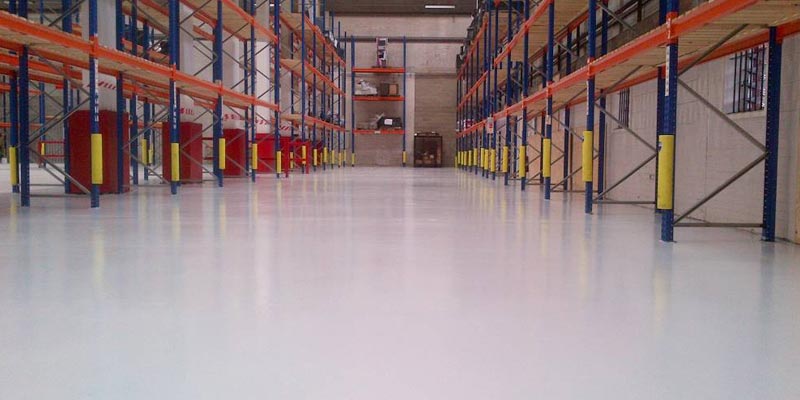What are the Benefits of an Epoxy Floor?
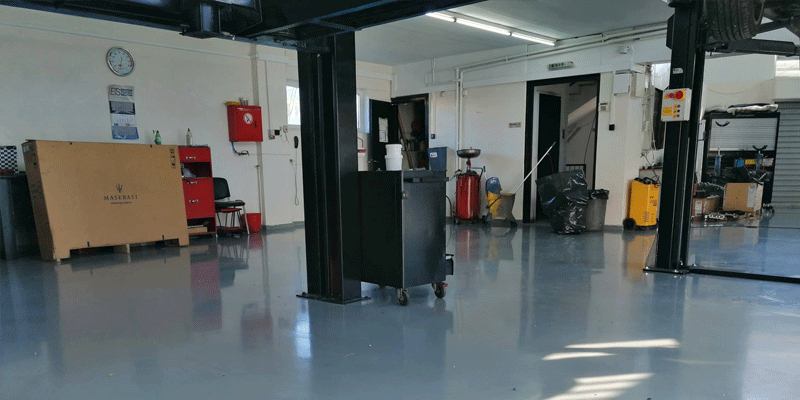
Concrete floors tend to be cold, hard, and uninviting. They are also quite difficult to keep clean, as they are porous and tend to absorb spills and dirt. This can be a real problem in homes with small children or pets. Epoxy flooring is a great way to update your concrete floors and make them easier to care for.
However, many people are unaware of the many benefits that epoxy floors can offer. This article will provide an in-depth look at epoxy floors, where they are typically installed, the types of epoxy coatings available, and the pros and cons of epoxy flooring.
What is Epoxy?
An epoxy floor is a type of floor coating made up of two main components: an epoxy resin and a polyamine hardener. When these two components are mixed together, they form a strong, durable, and moisture-resistant bond. Epoxy floors are typically installed in commercial and industrial settings such as warehouses, factories, garages, and showrooms. They can also be installed in residential homes, although this is less common.
What are the Types of Epoxy Coatings?
There are three main types of epoxy coatings: 100% solids, solvent-based, and water-based. 100% solids epoxy coatings are the most durable and moisture-resistant option. However, they are also the most expensive and difficult to install. Solvent-based epoxy coatings are slightly less durable and moisture-resistant than 100% solids.
However, they are also more affordable and easier to install. Finally, water-based epoxy coatings are the least expensive option, but they do not provide as much protection against moisture as the other types of epoxy coating.
What are the Benefits of Epoxy Floors?
There are many benefits to installing an epoxy floor in your home or business, including:
Improved appearance: Epoxy floors can be customized with attractive colors and patterns that will make your home more attractive. They also hide imperfections such as scratches, cracks, and chips on the concrete surface.
Increased durability: Epoxy floors are extremely durable and resistant to scuffs, scratches, heavy loads, humidity, and heat. This makes them ideal for garages, showrooms, warehouses – any location that sees a lot of foot traffic or heavy machinery use.
Easy maintenance: Epoxy floors are much easier to clean than concrete surfaces. They won’t absorb spills or debris like concrete does, which means less time spent mopping or vacuuming.
Property value: Epoxy flooring can significantly increase the value of your home if you decide to sell. It’s one of the most popular luxury upgrades that many buyers look for in a house.
Longevity: Epoxy floors are known for their longevity, as they can last for many years without requiring repairs.
As you can see, there are many benefits to installing epoxy flooring in your home or business. If you’re considering updating your concrete floors and making them easier to maintain, talk to a professional about the different options available and find out which type of epoxy coating is best suited to your needs.
Drawbacks of Epoxy Flooring
While epoxy flooring offers many benefits, it is not without its drawbacks. Potential downsides of installing an epoxy floor include:
Installation costs: Installing an epoxy floor can be quite expensive, especially if you opt for a 100% solids coating.
Limited design options: While you can choose from a wide range of colors and patterns, most epoxy coatings are still less customizable than other types of floors, such as hardwood or tile.
Moisture sensitivity: Epoxy coatings are more susceptible to moisture damage than other floors, so they must be appropriately installed in areas that do not have high humidity levels.
In general, the pros of installing an epoxy floor far outweigh the cons. Epoxy is a great choice if you’re looking for an attractive, durable, and easy-to-maintain flooring option. However, it’s important to consult with a professional to ensure that your floors are installed properly and protected from moisture damage.
How Do I Know if Epoxy is Right For My Home?
An epoxy coating is a great option if you consider updating your concrete floors. It’s durable, easy to clean, and can increase the value of your home. However, it’s important to consult with a professional to ensure that your floors are installed properly and protected from moisture damage.
Frequently Asked Questions About Epoxy Installation
1. How long does it take to install an epoxy floor?
The time required for installation depends on the size and complexity of the project. Most epoxy floors can be installed in 1-2 days.
2. How much does it cost to install an epoxy floor?
The installation cost varies depending on the type of epoxy coating, the size of the project, and the complexity of the design. In general, epoxy floors are more expensive than other types of flooring, such as hardwood or tile.
3. How long do epoxy floors last?
Epoxy floors are known for their longevity, as they can last for many years without requiring repairs.
4. Are epoxy floors slip-resistant?
Yes – epoxy floor coatings are designed to make floors more slip-resistant, making them ideal for locations that experience heavy foot traffic. They are usually applied to concrete floors in warehouses, garages, and commercial facilities.
5. Can you install an epoxy floor over an existing concrete surface?
In some cases, yes – especially if the existing surface is relatively smooth and free of cracks or chips. However, it’s best to consult with a professional before attempting this type of installation.
Are you thinking about installing an epoxy floor in your home or business? We can help! Contact us today to learn more about our epoxy flooring services.

